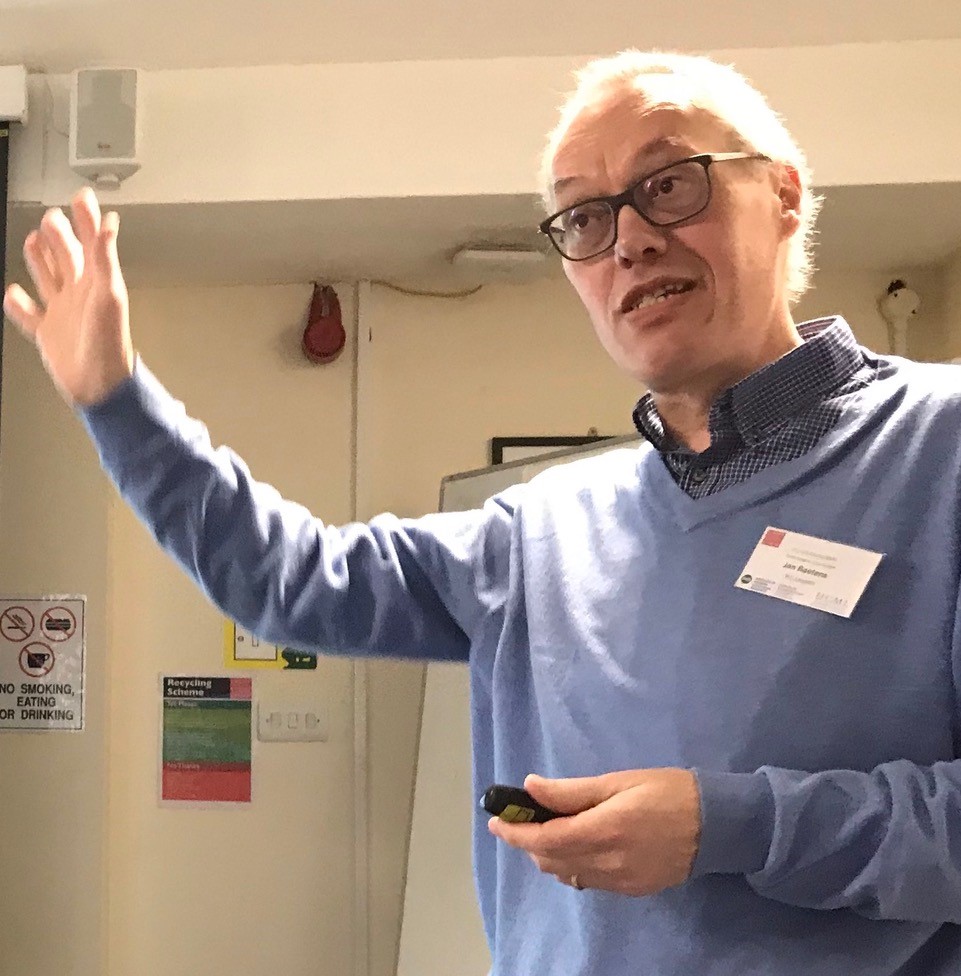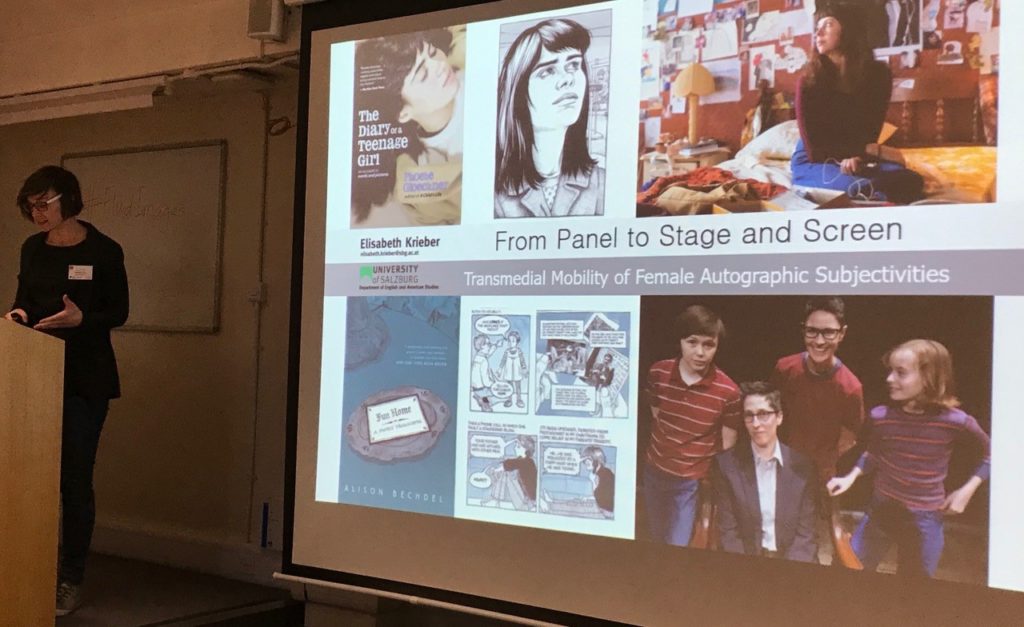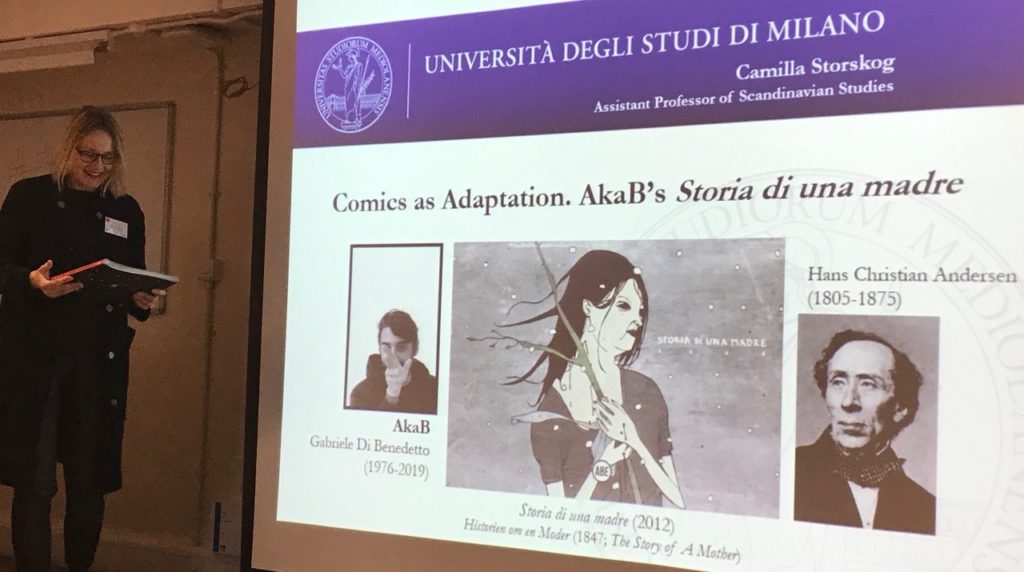Dr Tilmann Altenberg reports on the international conference hosted by the School of Modern Languages, Cardiff University on 23–24 January 2020.
In their journey across time, cultural and linguistic boundaries, and different artistic media, comics undergo multiple and often complex processes of change and transformation. The dimensions of comics’ mobility are often interconnected but have mostly been explored in isolation and from the perspective of a single discipline or language. A two-day international conference hosted by Cardiff University in January 2020 brought together more than twenty scholars from nine countries for a focused dialogue on comics’ multidimensional mobility.

The first day was dedicated to the transformations comics undergo over time. In his opening keynote ‘Reading Comics in Time’, Prof Jan Baetens (KU Leuven) considered the complex interrelationships between the cultural, medialogical and aesthetic levels of comics’ transmission through time, up to the point of consumption. The texts and topics explored in the subsequent delegate papers included Colleen Doran’s A Distant Soil, Ángel de la Calle’s Pinturas de guerra, Edgar Clement’s Mexican cult classic Operación Bolívar, graphic memoirs of the Nazi horrors, Spanish female cartoonists of the Transition period, and the historical validity of the comics form.

Day two of the conference accommodated papers examining comics from the angles of translation and adaptation. Prof Federico Zanettin’s (Università di Perugia) keynote focused on diachronic and intersemiotic aspects of interlingual translations, drawing on examples from widely known comics Tintin and Asterix, from the Franco-Belgian tradition. The papers presented subsequently engaged with a wide range of materials and aspects, including the rewriting chains of Aristophanic comic books for children, the many guises of Italian comics artist Zerocalcare’s Kobane Calling, transmedial storyworlds engaging with 1970s Italian terrorism, the dimensions of silence in Aka B’s wordless comic Storia di una madre, transmediality in Fumettibrutti’s autobiographical engagement with transsexuality, adaptations of Alison Bechdel’s Fun Home, and the boundaries of the comics medium in the digital sphere.
The papers and discussions demonstrated that the dimensions of comics’ fluidity – time, space and media – tend to overlap and flow into one another, confirming one of the conference’s key premises. This fluidity speaks to the lure that has emanated from the comics medium throughout its relatively short history, as manifest in the countless translations and adaptations, both from and into the comics medium.


The participants’ varied linguistic and disciplinary backgrounds entailed conversations that cut across traditional disciplinary boundaries and analytical perspectives. In fact, many delegates were relative (or complete) new-comers to the area of comics studies, testing the expertise and experience gained in other fields in the exploration of fascinating materials that are too often still excluded from established core disciplines.
The relatively small scale of the conference was conducive to a friendly and constructive atmosphere that saw delegates and guests engage in often sophisticated discussions on a wide spectrum of topics arising from the presentations. In the hope to capture some of the fresh thinking that characterised the conference, the organiser is planning to publish a selection of papers as a themed issue of the peer-reviewed online journal New Readings (Cardiff University Press) in 2021.
The conference received financial support from the Institute of Modern Languages Research, the University Council of Modern Languages and the Cardiff Comics Storytelling Network.
Tilmann Altenberg is a Reader in Hispanic Studies (Cardiff University), who initiated and organised the conference. In 2011 he established the Santander Collection of Hispanic Comics and Graphic Literature as part of the Cardiff University library holdings.
